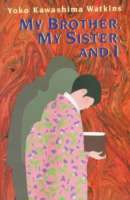
The author of So Far from the Bamboo Grove continues her semi-autobiographical fiction, describing the hardships, poverty, tragedies, and struggles of life for her and her two older brother and sister, living in post-World War II (1947) Japan.

The author of So Far from the Bamboo Grove continues her semi-autobiographical fiction, describing the hardships, poverty, tragedies, and struggles of life for her and her two older brother and sister, living in post-World War II (1947) Japan.
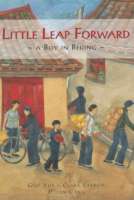
A sensitively written, real-life sory about a boy called Litle Leap Forward, growing up in he hutongs of Beijing in the 1960’s, at the time of the Cultural Revolution. Little Leap offers children an intimate and immediate account of a child’s experiences as Mao Tse Tung’s Great Leap Forward policy tightens its grip on China.
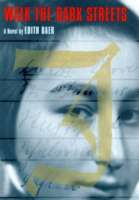
A girl’s escape from Nazi Germany.The city Eva Bentheim once adored is no longer familiar. A swastika is emblazoned on the flag atop the City Hall. Teachers, family, and friends are beginning to disappear. Her father seems gone in a different way; he has become ill, fragile, and despondent as the Nazis gain power. When things get worse, Eva’s mother desperately tries to obtain the proper papers for her family to leave the country. Then a horrible night of roundups occurs and Eva’s father is taken away. A nocturnal search begins for someone who can help release him from the city jail. Eva’s boyfriend, Arno, may have a way to save her father from deportation, but it soon becomes clear that their struggles have just begun. Exquisitely felt and written, Walk the Dark Streets resonates with the indomitability of the human spirit even as a loving family’s attempts to stay together grow more and more hopeless.
Baer’s previous novel, A Frost in the Night, relates earlier episodes in the lives of the family in Walk the Dark Streets.
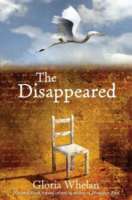
A riveting tale about love and sacrifice by a National Book Award winner. The Disappeared. Los desaparecidos. This is the name given to those who opposed Argentina’s dictatorial government and were kidnapped to ensure their silence. With her hometown of Buenos Aires ensconsced in the political nightmare, Silvia devises a plan to save her missing brother. She’ll make Norberto, son of the general who arrests dissenters, fall in love with her–and he’ll have his father set Eduardo free. Told in alternating chapters, this powerful and poetic story follows Silvia as she spirals into Norberto’s world, and Eduardo as he struggles to endure physical and emotional torture. Will Silvia’s scheme reunite her family? Or will the pursuit of freedom cost these devoted siblings their lives?
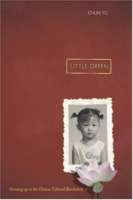
This first-person memoir tells the story of Chun Yu, who was born in a small city in China, during the Chinese Cultural Revolution. The streets were filled with roaming Red Guards, the walls were covered with slogans, and reeducation meetings were held in all workplaces. Every family faced danger and humiliation, even the youngest children. Shortly after Chun’s birth, her beloved father was sent to a peasant village in the countryside to be reeducated in the ways of Chairman Mao. Chun and her brother stayed behind with their mother, who taught in a country middle school where Mao’s Little Red Book was a part of every child’s education. Chun Yu’s young life was witness to a country in turmoil, struggle, and revolution — the only life she knew.

They came from China and Australia, from Scotland, England and Wales, from across Canada and the United States. They came from one thing: Gold!
Some stayed forever; some gave up and left; others lost their lives. But as the more determined struggled into the heart of the new region, they dug roads, built cities and established businesses. And by the time it was all over, the new providence of British Columbia was formed.
Some struck it rich; many more did not. This is their story.
While an English class of 7B students at Wentworth High in Australia struggle with a six-week essay assignment answering, “Who am I.” one child’s great-grandmother arrives unexpectedly from India to follow her dream.
Because he knows that the man accused of robbery is innocent, an eleven-year-old orphan struggles to find the courage to reveal the truth to his uncle in their small German village in 1867.
Ten-year-old Lydia describes her childhood escapades in pre-World War II Romania, her struggles to understand her parents’ divorce amid the chaos of the war, and her life on a kibbutz in Palestine. Based on the life of the Israeli poet Arianna Haran.